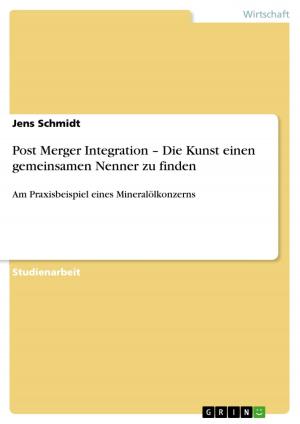The Relativity Principle in Language
Wilhelm von Humboldt and Leo Weisgerber
Nonfiction, Entertainment, Drama, Anthologies| Author: | Kathrin Ehlen | ISBN: | 9783640942435 |
| Publisher: | GRIN Verlag | Publication: | June 22, 2011 |
| Imprint: | GRIN Verlag | Language: | English |
| Author: | Kathrin Ehlen |
| ISBN: | 9783640942435 |
| Publisher: | GRIN Verlag |
| Publication: | June 22, 2011 |
| Imprint: | GRIN Verlag |
| Language: | English |
Seminar paper from the year 2006 in the subject English Language and Literature Studies - Linguistics, grade: 1,3, University of Paderborn (Anglistik und Amerikanistik), course: Metaphor and Metonymy, language: English, abstract: For hundreds of years scholars have been pondering on the interconnection of language and thought with in some points corresponding and in some points differing results. Two important protagonists in this discussion were Wilhelm von Humboldt (1767-1835) and Leo Weisgerber (1899-1985), whose positions to this question I am trying to set out in this paper. As the theme is very complex, I shall at least attempt to point out some aspects, which seem especially important to me. All the authors I consulted agree that Humboldt's theory cannot be comprehended without considering the philosophical background. Not being a student of philosophy, conceiving this part of the paper was very difficult for me. I tried to do my best by picking out those aspects of his philosophical ideas which I thought indispensable for the understanding of his doctrines.
Seminar paper from the year 2006 in the subject English Language and Literature Studies - Linguistics, grade: 1,3, University of Paderborn (Anglistik und Amerikanistik), course: Metaphor and Metonymy, language: English, abstract: For hundreds of years scholars have been pondering on the interconnection of language and thought with in some points corresponding and in some points differing results. Two important protagonists in this discussion were Wilhelm von Humboldt (1767-1835) and Leo Weisgerber (1899-1985), whose positions to this question I am trying to set out in this paper. As the theme is very complex, I shall at least attempt to point out some aspects, which seem especially important to me. All the authors I consulted agree that Humboldt's theory cannot be comprehended without considering the philosophical background. Not being a student of philosophy, conceiving this part of the paper was very difficult for me. I tried to do my best by picking out those aspects of his philosophical ideas which I thought indispensable for the understanding of his doctrines.















